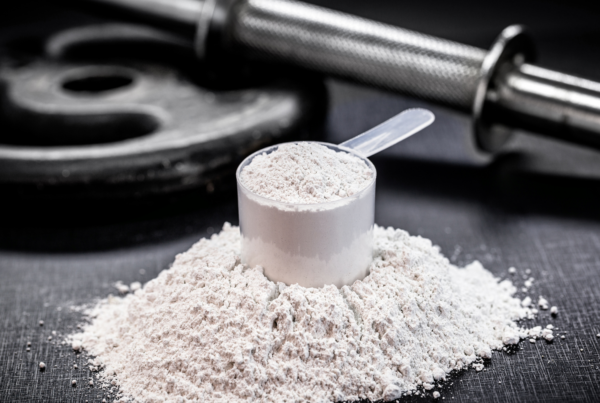Did Something Change About The Egg To Make It “Healthy” Again?
Absolutely not.
The truth is, there are no shortage of “experts opinions” on the topic of nutrition. It can seem overwhelming at times to find truth. Especially if you have diabetes.
In this post, I’ll unpack some of the greatest nutritional myths out there, and I’ll give you absolute clarity on what you need to know, and give you some simple, yet powerful conversations to have with you doctor about nutrition.
First, We Must Answer The Question, “What Is Nutrition And Why Do We Need It?”
At the most fundamental level, all living things have one primary job — to stay alive. All living things stay alive from energy.
And as humans, you and I get energy from nutrition.
We Get Our Energy From Nutrition And This Energy Keeps Us Alive.
Nutrition is broken down into two groups: micronutrients and macronutrients.
Micronutrients are beyond the scope of this discussion, but I’ll dive into them in greater detail in a future post.
Specifically, We Get Energy From Macronutrients: Fats, Proteins, And Carbohydrates.
Let’s take a look at what happens to each of these 3 macronutrients once they pass your mouth…
1) Fats
When you eat fat, it immediately breaks down into the basic building blocks of a fat cell which are called triglycerides. Whether it’s the fat from the avocado, or the fat from a steak, it immediately gets broken down into triglycerides.
These triglycerides are what we use for energy. Energy for now or energy for later.
If the signal, insulin is present, the triglyceride will be driven into its storage form, fat.
If there is no signal, then triglycerides are utilized as energy in the form of a ketone.
2) Protein
When you eat protein, it is broken down into its basic building blocks, called amino acids. These are used to build and repair our muscles.
Amino acids follow one of two pathways.
Either they are utilized immediately for muscle repair or lean muscle growth
Or they are funneled into a chemical process that turns them into sugar, know as the Krebs Cycle.
3) Carbohydrates
It turns out, at the core of every carbohydrate on the planet is sugar. To be a carbohydrate is to be sugar. This is really, really important.
Carbohydrates are immediately broken down into sugar, plus or minus fiber
Fiber is the musculoskeletal system of a plant. We have no need for that because we already have muscles and bones. That’s what the amino acids are for.
Fiber passes through our GI tract and ends up in the toilet. We don’t absorb fiber because we don’t use it, which means
All non-fiber carbohydrates are sugar.
Remember, our primary goal as a human being is to stay alive, and we need to do that by taking in energy from nutrition.
By design, we crave the simplest, most readily available, easiest to use form of energy that we can possibly get.
This makes sugar is our body’s most readily available fuel source.
Do you know what the storage-form of sugar is? Fat.
This is very, very important, but it’s by design. We are designed to survive famines. We store all the extra sugar as fat for famine protection. Only, in this age of fast food and grocery stores, the famine never comes. This is critically, critically important.
All excess sugar gets converted into fat by insulin.
Insulin is the hormone God gave us, and it’s released from the pancreas, in the setting of elevated blood sugar.
When we eat things that raise our blood sugar, it triggers an insulin response. When insulin is present, it takes two of the three forms of macronutrients (Fats and Carbs) that we can consume and it makes fat.
Insulin makes us fat.
Did you catch that?
We’ve got three options for nutrition (protein, fats, and carbs), and two of the three get converted to fat in the presence of insulin.
And insulin only shows up when our blood sugar is elevated.
And which of the three macronutrients raises your blood sugar? Of course, the one that is sugar. Carbohydrates.
I’m not demonizing carbohydrates or sugar. What I am demonizing is insulin.
If insulin is present you are making fat, not burning it.
If we know that extra sugar gets converted into fat from our insulin, and we know we some sugar in our bloodstream, then the question we should be asking is, “What’s a normal amount of sugar?”
Normal blood sugar = less than 5 teaspoons of sugar.
I bet that’s not as much as you thought.
It turns out that there are only five liters of blood in your whole body.
If we were to take that blood and pull out every bit of sugar that makes a normal non-diabetic sugar, we would have five teaspoons of sugar or less — five.
Just for context, a banana alone has five teaspoons of sugar. One bowl of instant oatmeal has five teaspoons of sugar. A Coca-Cola has nine teaspoons of sugar.
Diabetes = greater than 5 teaspoons of sugar.
Whoa.
You can see how this is such a huge problem.
As soon as you exceed five teaspoons of sugar in your bloodstream, insulin shows up. You immediately begin to make fat and block the fat burning process. You are prepping for the famine, only the famine isn’t coming.
One more concept before we dive into the questions that I really want you to start having with your physician is this concept of calories. Do they really matter?
All Calories Are Not Created Equal.
Can you see that calories cannot be equal?
Fat, protein and carbohydrates all contain different amounts of calories per gram, but they all act very differently in the body.
Although a calorie is a calorie in terms of what it represents in potential energy, once that calorie is consumed, there are different cascades that happen based on where that calorie comes from.
Calorie Quality > Calorie Quantity
If you’re consuming the majority of your calories from nutrition sources that raise your blood sugar, you can’t win at this. You just cannot.
Here Are Two Conversations That I Want You To Be Able To Have With Your Physician Regarding Nutrition.
1) If you have been diagnosed with pre-diabetes or diabetes, how will dietary changes affect your blood sugar?
Truth is, most people with diabetes are chasing their bad diet or misinformed diet with medication. This is why their numbers never improve, their weight always increases, and they’re always adding medication. We’re never addressing the problem, and by putting things in our mouth that chronically elevate our blood sugar, we will always be chasing it.
If you’re pre-diabetic or diabetic, and you’re thinking about making radical diet changes that lower your blood sugar, you absolutely have to talk with your physician about the medications you’re on.
Many of the oral hypoglycemic diabetic medications can profoundly drop your blood sugar even when you’re eating a high carbohydrate diet. If you make drastic changes in your diet, you can potentially put yourself at risk for low blood sugar episodes.
2) What medication changes you will need to make as you lose body fat?
When you stop chasing a bad diet, you will start seeing the benefits.
You start burning fat. Your cholesterol starts dropping. Your thyroid function improves. So does your mobility, your inflammation, your depression, and your chronic pain — it all improves.
If you have high blood pressure, heart disease, or kidney disease, and you take medicine, you’re going to need to have your physician monitor these medications as you get healthier.
Please consult your physician about a diet that will not put you in harms way. Don’t adjust your diet on your own.
I hope you enjoyed this post and that you will be able to use these tips to help improve your nutrition. It really is the foundation for good health and super important.
Please Leave Me Your Comments, Questions, And Let Me Know If There Are Other Topics You Would Like Me To Discuss In Future Posts.
If you prefer video content, please be sure to subscribe to our YouTube channel. You can also listen to our podcast, The Concierge Medicine Show on iTunes.
Take care —
Aaron Wenzel, MD

Dr. Aaron Wenzel is a concierge physician specializing in the care of fast-moving entrepreneurs, executives, and public figures in the Nashville, TN area. Dr. Wenzel’s diverse life experience and extensive training in family medicine, emergency care, nutrition, and hormone replacement therapies give him the unique platform to provide unmatched care for his patients.





